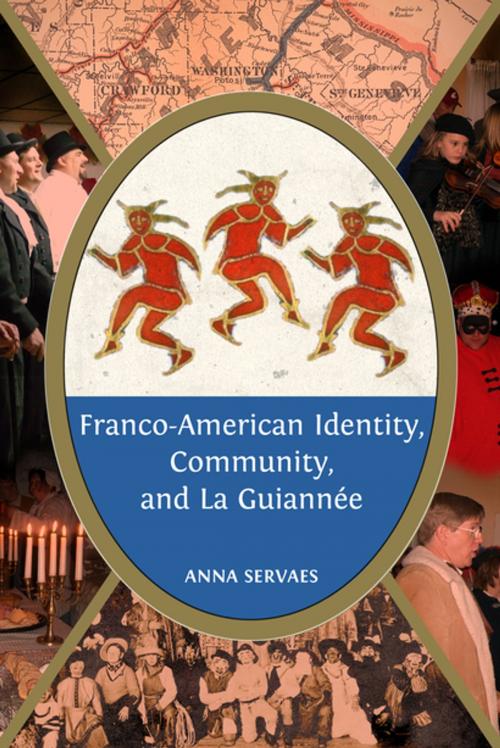Franco-American Identity, Community, and La Guiannée
Nonfiction, Social & Cultural Studies, Social Science, Cultural Studies, Customs & Traditions, Folklore & Mythology, Anthropology| Author: | Anna Servaes | ISBN: | 9781626745551 |
| Publisher: | University Press of Mississippi | Publication: | April 10, 2015 |
| Imprint: | University Press of Mississippi/Center for French Colonial Studies | Language: | English |
| Author: | Anna Servaes |
| ISBN: | 9781626745551 |
| Publisher: | University Press of Mississippi |
| Publication: | April 10, 2015 |
| Imprint: | University Press of Mississippi/Center for French Colonial Studies |
| Language: | English |
French traditions in America do not live solely in Louisiana. Franco-American Identity, Community, and La Guiannée travels to Ste. Genevieve, Missouri, and Prairie du Rocher, Illinois, to mark the Franco-American traditions still practiced in both these Midwestern towns. This Franco-American cultural identity has continued for over 250 years, surviving language loss, extreme sociopolitical pressures, and the American Midwest's demands for conformity. Ethnic identity presents itself in many forms, including festivals and traditional celebrations, which take on an even more profound and visible role when language loss occurs.
On New Year's Eve, the guionneurs, revelers who participate in the celebration, disguise themselves in eighteenth- and nineteenth-century costume and travel throughout their town, singing and wishing New Year's greetings to other members of the community. This celebration, like such others as Cajun Mardi Gras in Louisiana, Mumming in Ireland and Newfoundland, as well as the Carnaval de Binche, belongs to a category of begging quest festivals that have endured since the Medieval Age. These festivals may have also adapted or evolved from pre-Christian pagan rituals.
Anna Servaes produces a historical context for both the development of French American culture as well as La Guiannée in order to understand contemporary identity. She analyzes the celebration, which affirms ethnic community, drawing upon theories by influential anthropologist Victor Turner. In addition, Servaes discusses cultural continuity and its relationship to language, revealing contemporary expressions of Franco-American identity.
French traditions in America do not live solely in Louisiana. Franco-American Identity, Community, and La Guiannée travels to Ste. Genevieve, Missouri, and Prairie du Rocher, Illinois, to mark the Franco-American traditions still practiced in both these Midwestern towns. This Franco-American cultural identity has continued for over 250 years, surviving language loss, extreme sociopolitical pressures, and the American Midwest's demands for conformity. Ethnic identity presents itself in many forms, including festivals and traditional celebrations, which take on an even more profound and visible role when language loss occurs.
On New Year's Eve, the guionneurs, revelers who participate in the celebration, disguise themselves in eighteenth- and nineteenth-century costume and travel throughout their town, singing and wishing New Year's greetings to other members of the community. This celebration, like such others as Cajun Mardi Gras in Louisiana, Mumming in Ireland and Newfoundland, as well as the Carnaval de Binche, belongs to a category of begging quest festivals that have endured since the Medieval Age. These festivals may have also adapted or evolved from pre-Christian pagan rituals.
Anna Servaes produces a historical context for both the development of French American culture as well as La Guiannée in order to understand contemporary identity. She analyzes the celebration, which affirms ethnic community, drawing upon theories by influential anthropologist Victor Turner. In addition, Servaes discusses cultural continuity and its relationship to language, revealing contemporary expressions of Franco-American identity.















